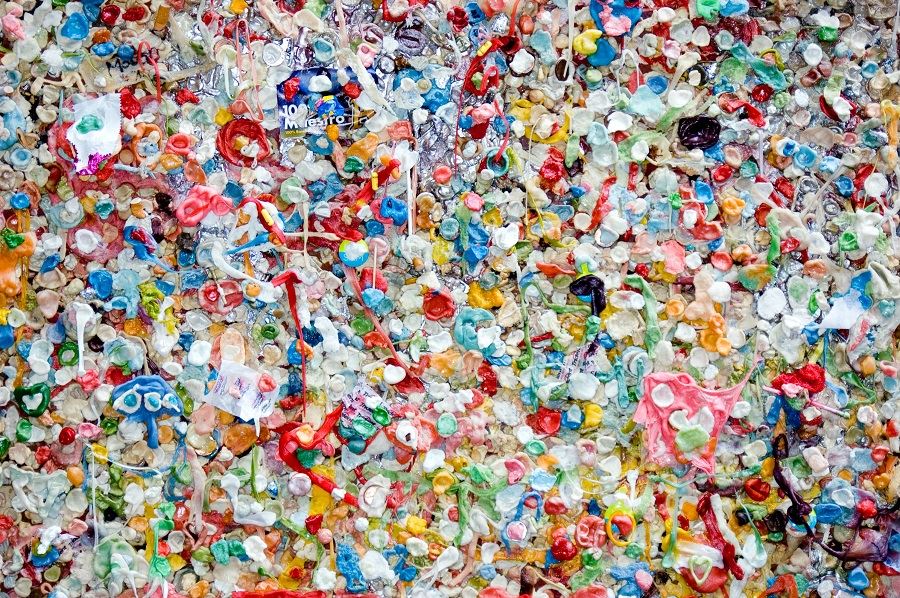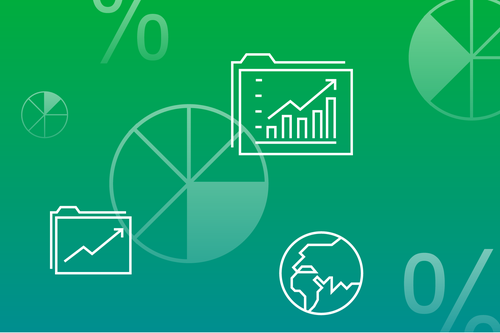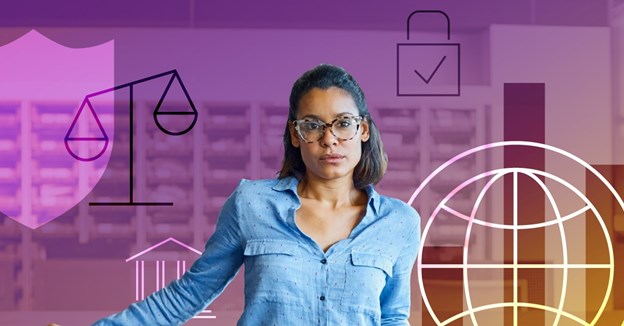
Almost everything we do, or use, comes at a carbon cost. The food we consume is no different. According to the Centre for Climate and Energy Solutions, 11% of all greenhouse gas emissions are through the agricultural sector, both animal- and plant-based. That is before packaging gets involved. On average, packaging accounts for about 5% of the energy used in the life cycle of a food product, making it a significant source of greenhouse gas emissions, the Climate Collaborative says.
That’s a lot of greenhouse gases, from the wrappings for your breakfast bagels, to your frozen pizza roll packaging - not to mention the food itself. This is a big reason why plastics are so critical to the future of food and to the future of the planet. And it’s why investors in the current proxy voting season, in which shareholders vote on how their companies are run, are pushing companies to rethink packaging, building on successes of the past.
“Already, proxy voting has had an impact on the way companies reduce reliance on plastic packaging,” says Conrad MacKerron, senior vice president at As You Sow, an investor advocacy firm. “Some of the memorable things that we did several years ago are still notable. In 2018, before this issue was quite as prominent as it is now, we got a commitment from McDonalds to stop using polystyrene cups in their global system. In 2020, Starbucks agreed to begin the process of moving towards eliminating single use coffee cups, another huge victory,” MacKerron says.
Trouble Is, A Lot of Packaging Is Still Plastic
Plastic pollution is everywhere. Approximately 11 million metric tons of plastic waste pollute the ocean each year, and microplastics have been found everywhere, and I mean that literally. Microplastics were found on the top of Mount Everest and at the bottom of the Mariana Trench, and most alarmingly, it is even inside us, as microplastics were found in human blood.
How did microplastics get inside us? Oftentimes, via the food we eat. Research in The Journal of Food Science found that humans ingest microplastics, some of it from the containers in which our food is stored or in which it arrives. A Harvard Health report finds that certain chemicals in plastic can leach out and into the food and beverages we eat, and some of these chemicals have been linked to health problems such as metabolic disorders (including obesity) and reduced fertility.
A possible solution would be to use less of the dangerous packaging materials and more of the safer and more sustainable ones. The problem is, this costs money, and companies are unlikely to make changes that will cost, unless they have to. Take Amazon (AMZN) and its packaging, for example. “The blue and white flexible packages with bubble wrap that Amazon uses to deliver its products to your door? They are not recyclable, unfortunately. That's a huge problem. The company has phased them out in India and in Germany because of laws there forcing it to. This shows that phasing out of these products can be done, it’s just a matter of willingness to do it in places where it’s not actually being forced to by government policy,” says Conrad MacKerron, senior vice president at As You Sow.
So how can we get companies to change? The proxy process plays a huge part in that. (Find out what proxy voting is here.)
The Power of Shareholder Proposals and Proxy Votes
By now, the 2022 proxy season is well underway, and signs are emerging that this could be one for the history books. Already, many shareholders are offering high levels of support to shareholder proposals, most notably at Jack in the Box (JACK), where more than 95% of investors supported the company accelerating its move to sustainable packaging.
Shareholder Green Century asked that Jack in the Box issue a report discussing if and how the company could advance its environmental sustainability efforts by developing a comprehensive sustainable packaging policy. Suggestions included eliminating single-use plastics and moving to more recycled packaging. Perhaps if all the suggestions are implemented, we could end up with our Jack in the Box meal wrapped in paper and our sodas in paper cups!
To MacKerron, the issue of plastics, packaging, and pollution is at its peak influence right now because of the amount of media attention plastic pollution is getting. “This is really top of mind for many asset managers and so we anticipate even larger votes this year. Plus, this issue will be a top priority for years to come, especially since it is linked to climate change, the other big issue for investors,” he says. He says there are two main questions that companies must answer:
Can the big companies really follow through and achieve the commitments that they have promised by 2025?
Can there be more traction with other companies that haven't yet made commitments?
The Business Case for Sustainable Packaging
Last month, A&W introduced its fully sustainable, but “weird-looking” butterfly cup in Canada, complete with a video on how to use it. Plastic straws are slowly going the way of the dinosaurs. In fact, according to the Sustainable Packaging Market Research Report, the global sustainable packaging market is projected to reach USD 470.3 billion by 2027 from an estimated USD 305.31 billion in 2020, at a CAGR of 10.3% from 2021 to 2027. There’s good reason for this.
According to Sustainalytics’ 10 for 2021: Investing in the Circular Food Economy report, the annual economic value loss of both plastics and food waste is roughly USD 1.4 trillion, and they accounts for more than 82% of the annual global carbon budget.
If this is not enough incentive to change, companies might also no longer have much of a choice in the matter, as governments have started banning or taxing certain types of plastics and packaging. Canada, for example, banned single-use plastics beginning late 2022, though the EU was even quicker to do this, banning single-use plastic products and creating alternatives starting in 2021. Similarly, the U.K. levied tax from 2022 on plastic packaging with less than 30% recycled materials.
“These requirements may increase costs for food companies in the short term because sustainable materials often carry a cost premium compared to cheap virgin plastic. Still, companies that adapt early may be best positioned to work collaboratively with existing suppliers, secure a stable supply of new materials, and gradually redesign their products and processes. In doing so, they may also be able to spread costs over time, while capitalizing on consumer awareness and brand recognition. On the other hand, firms that delay changes may incur sudden costs and disruptions, become targets of environmental campaigns and suffer reputational damage for being associated with ocean pollution. Crucially, they might also lose access to certain markets if they fail to comply with stricter requirements,” the Sustainalytics report points out.
Sustainable Packaging Goes to the Polls
Shareholders are not waiting for companies to take steps, but they are actively engaging with them, trying to proactively spur change. And where engagement has failed, shareholders are turning to the ballot. Here is how that process works. So far, we have counted 16 proposals filed. Here is the list:
As You Sowand Green Century have filed proposals, which aim to reduce the use of single-use plastics, and in some cases, recycle more. Two of the proposals have already been voted on. The Jack in the Boxproposal filed by Green Century saw a record-breaking 95% of investors vote in support of urging the fast-food chain to accelerate its sustainable packaging efforts. The vote was the highest-ever shareholder vote in favor of a plastics or packaging proposal.
Meat company Tyson Foods (TSN) also had shareholders vote on a reduction in plastic use. This vote received 13.7% support. This is mainly because of the dual-share class structure of the company--it is 70% owned by the Tyson family, which means that unless the family supports the resolution (which is unlikely to be the case if the resolution has reached the voting stage, as shareholders often try to engage with the company to ask it to make changes, and if the company agrees, proposals are dropped from the ballot), it will be impossible for shareholders to gain any majority.
With other companies, shareholder engagement--a process in which investors use their position as shareholders to negotiate with the company and thereby influence corporate decision-making--has yielded results.
Engagement Works--Shareholder Proposals Withdrawn
In many cases, the act of filing the shareholder proposal itself was enough for companies to engage with the filers. This has led to several of these proposals being withdrawn. So far, nine proposals have been withdrawn, two for technical reasons, and the rest due to successful engagement with the company.
“Having companies readily agree to engage before going for a vote is a new norm. Up until about two years ago, there would be a lot of pushback. The actual time to reach an agreement could be a couple of years. But, in the last year, things have really sped up. This issue has been elevated in the public consciousness so much that companies are now making these decisions to agree to what we're asking within a period of months,” MacKerron says.
As You Sow has engaged with PepsiCo, Kraft Heinz, Coca-Cola, Church & Dwight, and Restaurant Brands, and this engagement has resulted in the shareholder proposals being withdrawn. Green Century has also engaged successfully with Kraft Heinz, Coca-Cola, Newell Brands, and Office Depot, leading to the proposals being withdrawn.
To MacKerron, the engagements with Coke and Pepsi were the most exciting. As You Sow asked both to set specific goals on reusable bottles. “Coke came out in February and agreed to increase the amount of the percentage of sales of reusable bottles from 16 to 25% by 2030 of beverages. It’s an industry leading goal. Pepsi came out a month later and said it would set a goal. The company is doing research on what it thinks it can do, and will announce a goal later in the year,” MacKerron said.
Restaurant Brands International (QSR), owner of Burger King, Popeyes, and Tim Hortons, committed to eliminating PFAS (per- and polyfluoroalkyl substances) from its food packaging by 2025 in all stores worldwide. PFAS are toxic chemicals used in a range of products, including nonstick and stain-repellent products, which have been linked to cancer and reproductive harm.
Newell (NWL), Office Depot (ODP), and Kraft Heinz (KHC) agreed to set goals to reduce plastic use. Kraft Heinz agreed to set a goal to reduce total virgin plastic. Newell committed to setting a goal to achieve at least 20% non-virgin plastic packaging for the manufactured goods portion of its product portfolio. Office Depot, which makes Sharpies and Rubbermaid containers, agreed to set an absolute plastic-reduction goal for packaging associated with its private-label products and e-commerce shipping operations.
In the case of Church & Dwight's, As You Sow withdrew the resolution in recognition of the company’s preexisting--but not public--goal to reduce plastic packaging. “We had substantial email conversation with Church & Dwight throughout the fall of 2021 to inform and ensure the accuracy of the 2021 Corporate Plastic Pollution Scorecard. The resolution was filed because our Scorecard revealed that Church & Dwight was a laggard in preventing plastic pollution,” said Kelly McBee, As You Sow’s waste program coordinator.
What’s Up for Vote?
That leaves us with five proposals that are coming up for vote. One at Amazon (AMZN), one at supermarket chain Kroger (KR), and one at McDonald’s (MCD), and two at energy companies ExxonMobil (XOM), and Phillips 66 (PSX). Chevron Phillips, jointly owned by Phillips 66 and Chevron, is a major producer of virgin plastics, while Exxon was recently identified as the largest global producer of single-use-plastic-bound polymers.
MacKerron says shareholder support for plastic- and pollution-related votes has increased enormously in the last year, because some of the big investors have changed their proxy-voting guidelines to vote in favor of these proposals.
“The biggest impact could be with Amazon. Last year’s proposal got 35% support. Our main concern is again get the company to disclose how much plastic it is using, and then set a commitment to reduce the amount of plastic used,” MacKerron said.




















